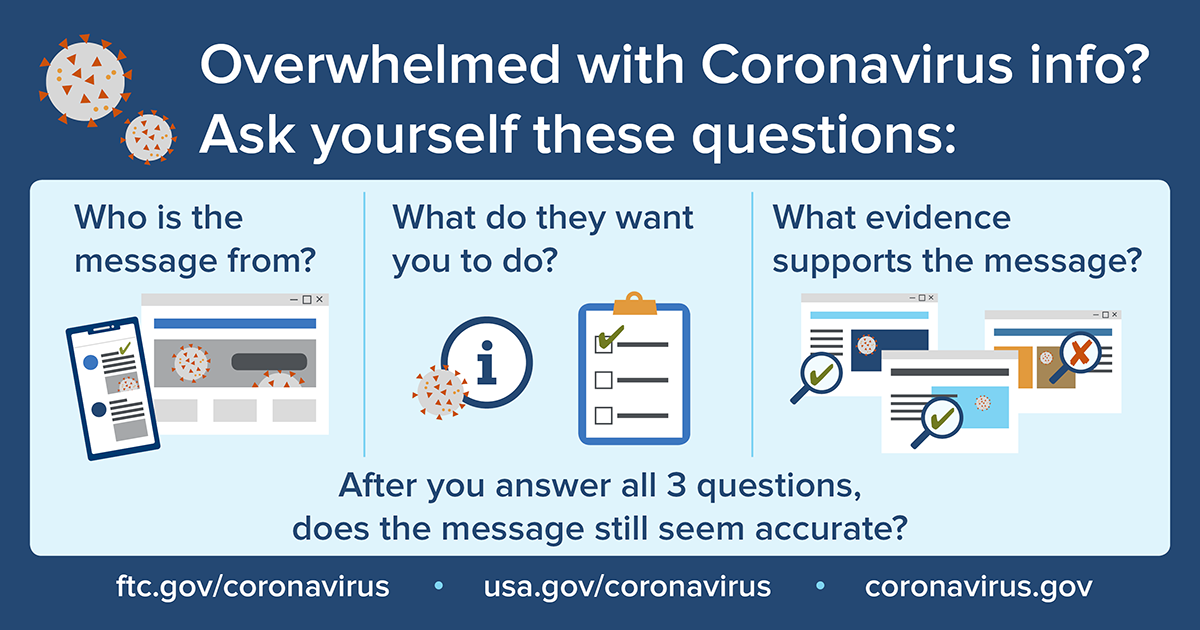It's dizzying, the amount of information out there about the Coronavirus. You’re dealing with story after story online and through social media, television, radio, and in newspapers and magazines — each with its own take — at all hours of the day and night, from all around the world.
So how can we sort out what’s real and what’s not?
You already know to go to Coronavirus.gov for medical information and usa.gov/coronavirus to see what the federal government is doing. Your local government and health department have the best information about what people in your area can (and can't) do. And the Federal Trade Commission has great information on the wide variety of Coronavirus scams. Good. But it’s still a lot.
So first, take a breath. The amount of information is overwhelming — and the topic is tough to handle and sometimes panic-provoking. So, step away from the screen for a minute. Look out a window. Talk to a loved one. Listen to some music. Breathe. Nobody makes good decisions when they’re overwhelmed.
Then, apply some critical thinking tools to all those messages out there. Because, right now, no one can afford to take all the information at face value. Before you act on a message you've seen, before you share it, or before you even worry about it, ask — and answer — all three of these critical questions:
- Who is the message from? Do I know them? Do I trust them? Am I positive they are who they say they are? Double-check: government impersonators are active right now.
- What do they want me to do? Just know something — or are they trying to get me to act in some way? Do they want me to buy something, download something, or give up personal info?
- What evidence supports the message? Use some independent sources to fact-check it — or debunk it. Maybe talk to someone you trust. But always verify, using a few additional sources. Once you’ve done that, does the message still seem accurate? We can't help slow the volume of information coming your way. But approaching information by asking and answering these questions can help you sort out what's helpful…and what’s a scam. So, for example, if the message is about a treatment or cure, you know where to go: Coronavirus.gov.
Bottom line: when you come across new — sometimes alarming — information, stop. Talk to someone else. Focus on whether the facts back up the information you’re hearing. Good, solid evidence will point you in the right direction. Then decide what you think and what you want to do with the message – pass it on, act on it, ignore it, or roll your eyes at it. And if you suspect a scam, tell the Federal Trade Commission so we can keep trying to shut the creeps down.

